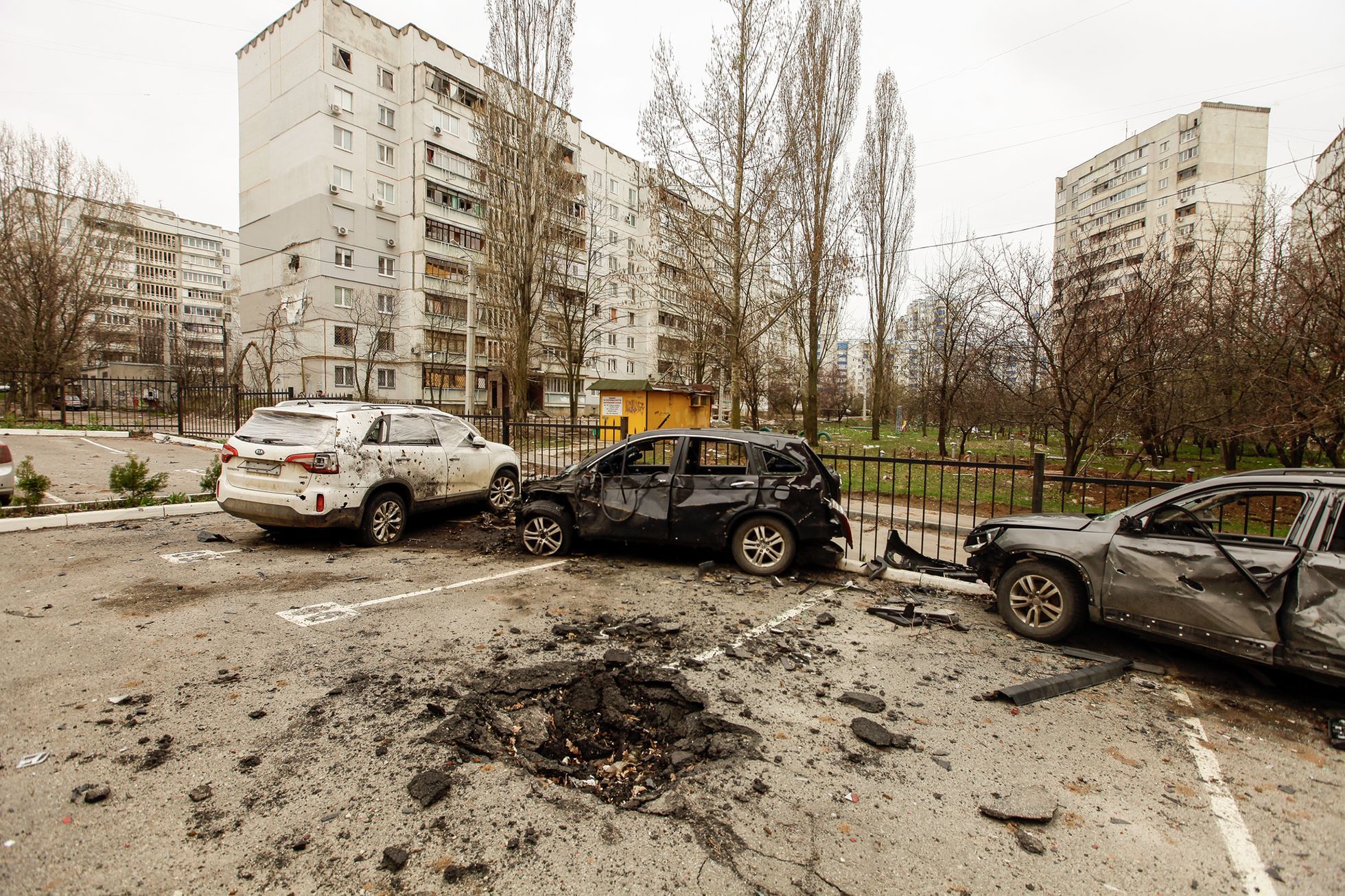Anna Ivanovna, a 67-year-old Ukrainian woman from Kharkov, became a Kremlin propaganda star without knowing it, and her likeness appeared on billboards, posters and graffiti all over Russia. Within weeks, Moscow’s machines made her a symbol of alleged support for the invasion among ordinary Ukrainians and made her famous as “Babushka Z” according to the letters the occupying army used to label their technology.
The old woman in boots rose to prominence in Russia after footage began circulating in March at her home on the outskirts of Kharkov walking towards two Ukrainian soldiers with Soviet Union flags in their hands. They asked him if he was waiting for them.
“Sure. I pray for you and Putin,” he told them. The militants explained to the woman that they had come to help and offered her food. Then the old ladies took the flags, which they threw on the ground and stamped. “My parents died because of this flag in World War II,” he said angrily, and immediately returned the food that was offered to the soldiers. The short video was immediately taken advantage of by Russian propaganda and depicted Anna Ivanovna as a woman who saw Russia as a liberator. But the reality is more complicated.
There will be a military culture study essay on this someday – it’s a fascinating study of how the memory and meaning of immediate war is so malleable.
Babushka Z: The woman who became an icon of Russian propaganda https://t.co/TNpVf1ZMBG
– Dr Catherine Bateson (@catbateson) June 15, 2022
Babushka Z’s real identity has been unknown for a long time, it’s not even known if she is still alive. The woman was finally tracked down to BBC.
“How can I support the deaths of my people? My grandson has to go to Poland. We live in fear and terror,” he explained to reporters three months later that he did not approve of the Russian invasion. The Red Banner of the Soviet Union is said to have considered it a “flag of love and happiness in every family” and all those who claim otherwise are wrong.
“If I could talk to (Russian President) Vladimir Putin, I would tell him he made a mistake. We Ukrainian workers, what do we deserve? We are the ones who suffered the most,” the woman explained, returning to the March incident. with the Ukrainian army. According to him, he was wrong and thought the Russian offered his food.
Despite Babushka Z becoming a star in Russia, Putin’s army did not spare his home in the Kharkiv district of Velyk Danylivek. The windows were shattered, the roof was broken and there were shards in the lawn before it was built. “Now I understand. (Russia) don’t care about Ukraine, they only care about the conquest of our country,” he admitted.
what does the hotel offer? death in the Soviet flag will come in your house and take care of ourselves? pic.twitter.com/ZTQWypX4Oo
– solo (@ivegottheflu) April 25, 2022
Anna Ivanovna was depicted by Russian propaganda in house facade paintings, posters, graffiti and even erected a statue for her. Moscow has one of these built in the conquered southeastern city of Mariupol next to a World War II memorial. The opening was attended by Deputy Chief President Putin Sergei Kiriyenko, who is in charge of the separatist republic in Donbas in the Kremlin, as well as the occupied territory of Ukraine.
“I’m not happy they made me famous because they now consider me a traitor in Ukraine,” complained Babushka Z, who has been the target of attacks on the Internet. It is still unknown who released the video in March. What is certain, however, is that the Russian media quickly took over the footage and put it in a different context.
“Ukrainian soldiers allegedly came to the village to provide humanitarian assistance to the people. However, this time they did not miss the opportunity to laugh at the residents,” he commented on April 7. first channel Russian state television video with presenter Babushka Z from the morning show.
Later that same day, in a three-hour broadcast, he accused Ukrainian soldiers of desecrating the Soviet flag. Two days later, moderator Vitaly Yeliseyev also spoke with Anna Ivanovna on the same television program. She cries when she talks about the woman’s story. “This is called old age… I don’t know about you, but I just saw what uncompromising spirit means. It is very sacred to protect such people,” he said in a trembling voice.
Deputy Ambassador Dmitry Polyansky also spoke about the retiree at a UN Security Council meeting on April 12. He called Anna Ivanovna a symbol of “another Ukraine”, which, thanks to military operations, was given the opportunity to have an “excellent environment”.
Anna Ivanovna was not the only Russian propaganda icon during the invasion. In recent days, in state media he wrote more and more about the boy Alyosha from the Belgorod region. Pro-Kremlin media claimed that “he greets Russian military convoys every day and dreams of a career as a tanker in the Russian army.” His cartoon went viral on social networks, where he was standing next to Bábuška Z.
Video: Interview with a Czech volunteer working as a medic in Ukraine
I don’t know how I survived the explosion of the anti-tank grenade, it exploded as it was unloaded, said a Czech volunteer who works as a medic in Ukraine. | Video: Martin Veselovsk

“Certified bacon geek. Evil social media fanatic. Music practitioner. Communicator.”







